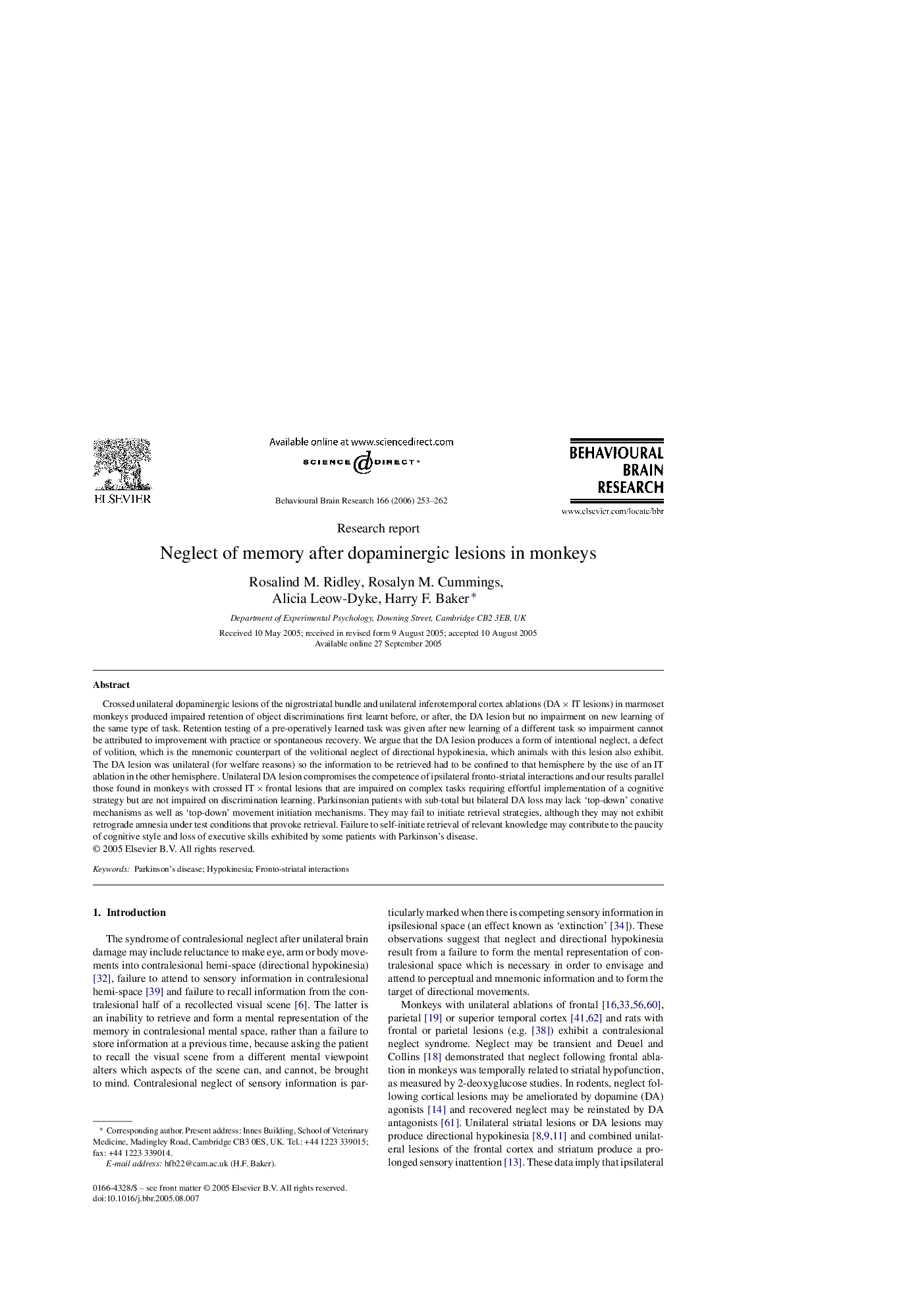| Article ID | Journal | Published Year | Pages | File Type |
|---|---|---|---|---|
| 4316225 | Behavioural Brain Research | 2006 | 10 Pages |
Crossed unilateral dopaminergic lesions of the nigrostriatal bundle and unilateral inferotemporal cortex ablations (DA × IT lesions) in marmoset monkeys produced impaired retention of object discriminations first learnt before, or after, the DA lesion but no impairment on new learning of the same type of task. Retention testing of a pre-operatively learned task was given after new learning of a different task so impairment cannot be attributed to improvement with practice or spontaneous recovery. We argue that the DA lesion produces a form of intentional neglect, a defect of volition, which is the mnemonic counterpart of the volitional neglect of directional hypokinesia, which animals with this lesion also exhibit. The DA lesion was unilateral (for welfare reasons) so the information to be retrieved had to be confined to that hemisphere by the use of an IT ablation in the other hemisphere. Unilateral DA lesion compromises the competence of ipsilateral fronto-striatal interactions and our results parallel those found in monkeys with crossed IT × frontal lesions that are impaired on complex tasks requiring effortful implementation of a cognitive strategy but are not impaired on discrimination learning. Parkinsonian patients with sub-total but bilateral DA loss may lack ‘top-down’ conative mechanisms as well as ‘top-down’ movement initiation mechanisms. They may fail to initiate retrieval strategies, although they may not exhibit retrograde amnesia under test conditions that provoke retrieval. Failure to self-initiate retrieval of relevant knowledge may contribute to the paucity of cognitive style and loss of executive skills exhibited by some patients with Parkinson's disease.
